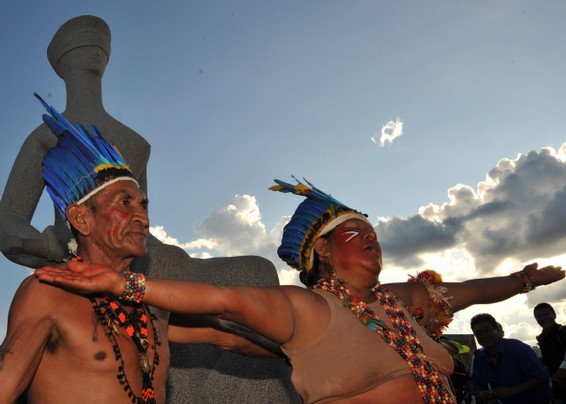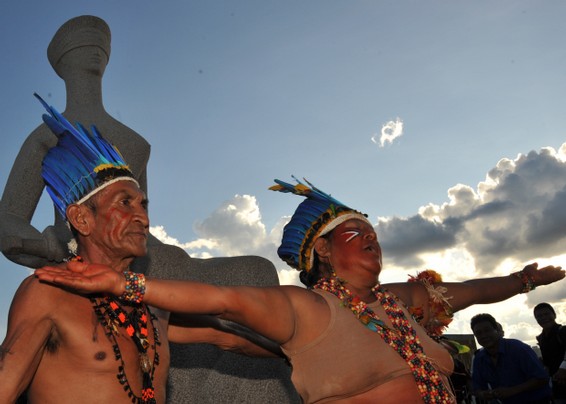José Cruz/ABr
The devil's in the details. According to Ana Paula Caldeira Souto Maior and Raul Telles do Valle, lawyers at the non-governmental Socioambiental Institute, 19 conditions tacked on to the justices' decision "restrict the indigenous peoples' rights to the exclusive use of the natural resources on their lands, generally making them subordinate to national military strategies, as if the indigenous people represented a threat to the country".
An example is the condition that "the strategic expansion of road networks, the exploitation of strategic energy alternatives, and decisions regarding strategic (mineral) wealth will be decided by competent government agencies (the Defense Ministry and National Defense Council) and will be developed without consulting the indigenous communities". This decision, which runs counter to Constitutional guarantees that indigenous peoples "be heard" regarding projects that affect their land and natural resources, may open the way for construction of Cotingo Dam and other hydroelectric projects which the electric sector has pursued for decades, but which have been held up due to the projects' potential impacts on the reserve.
It appears that the high court failed to find a way to deny the indigenous peoples' land claims, but decided to follow the government's lead in demonizing indigenous people and their defenders as obstacles to development. This may mean rougher going for indigenous land rights in the future.


